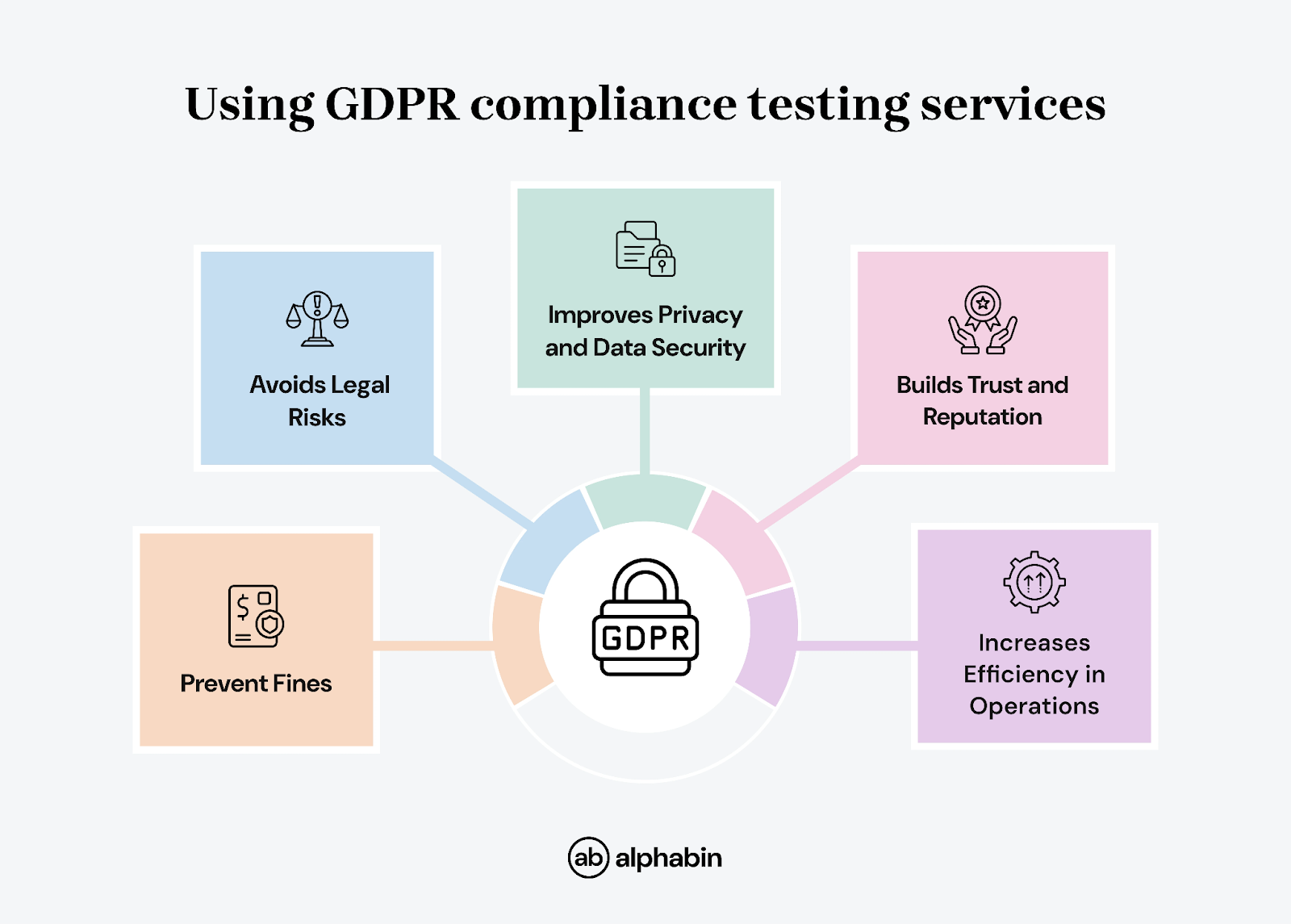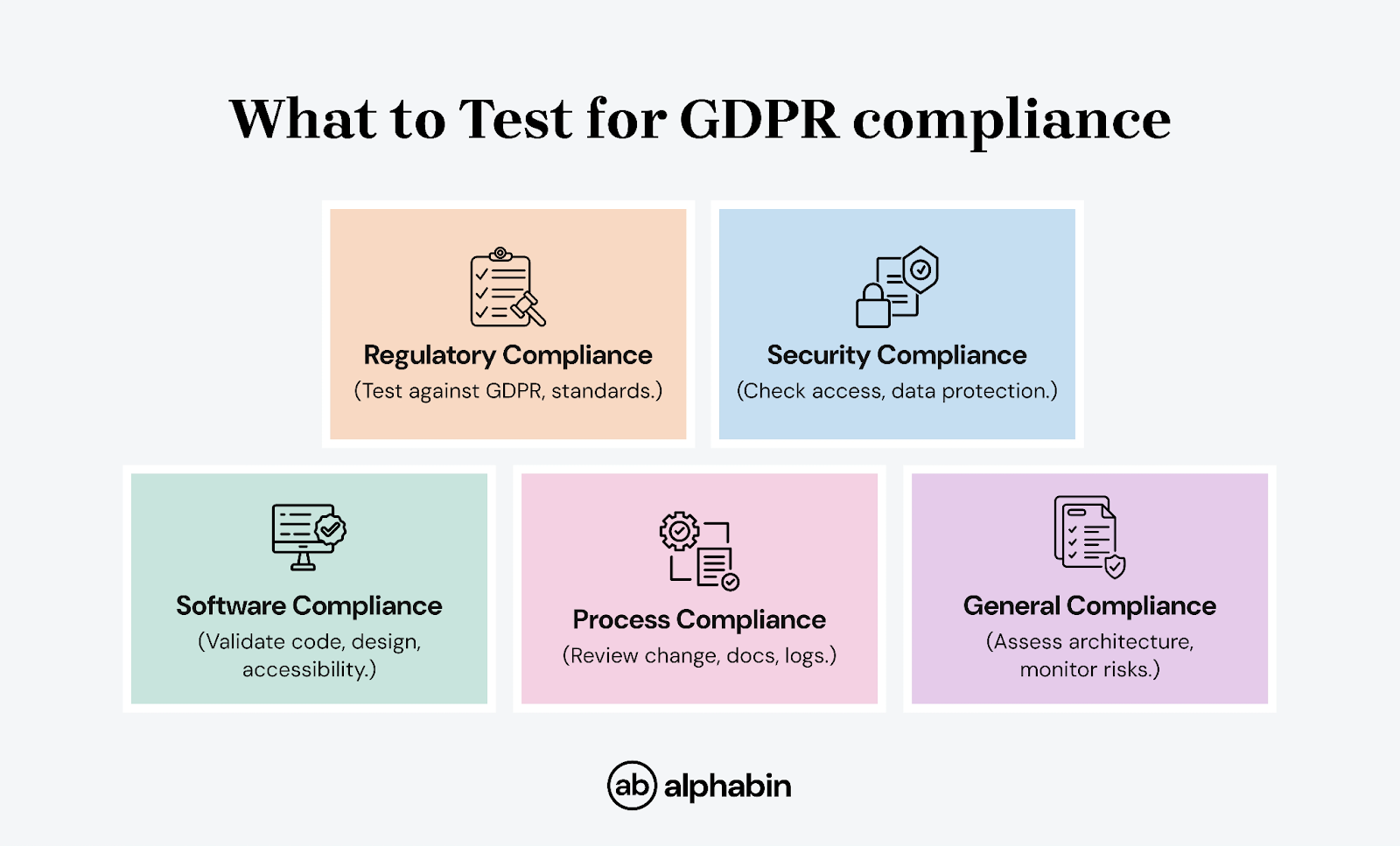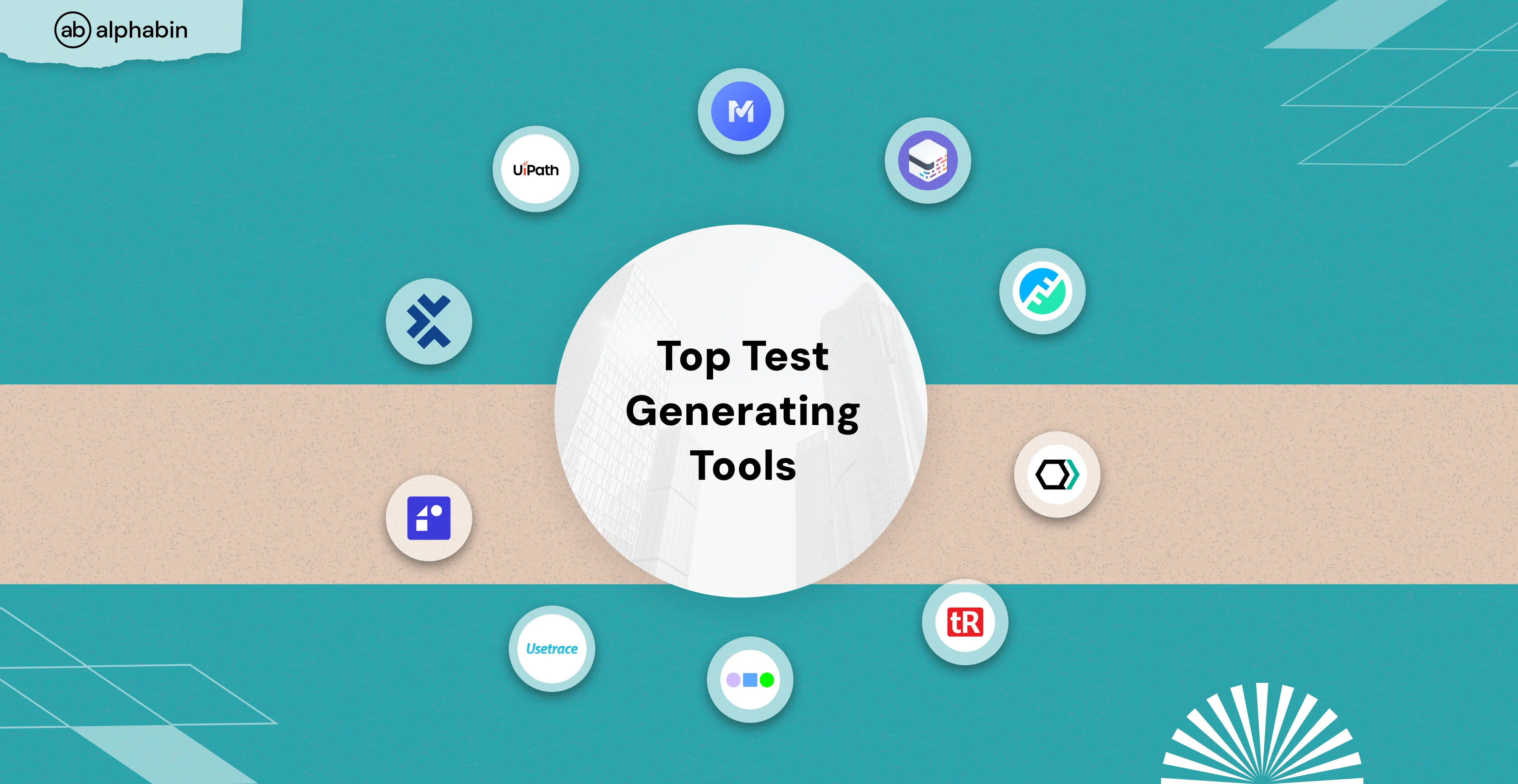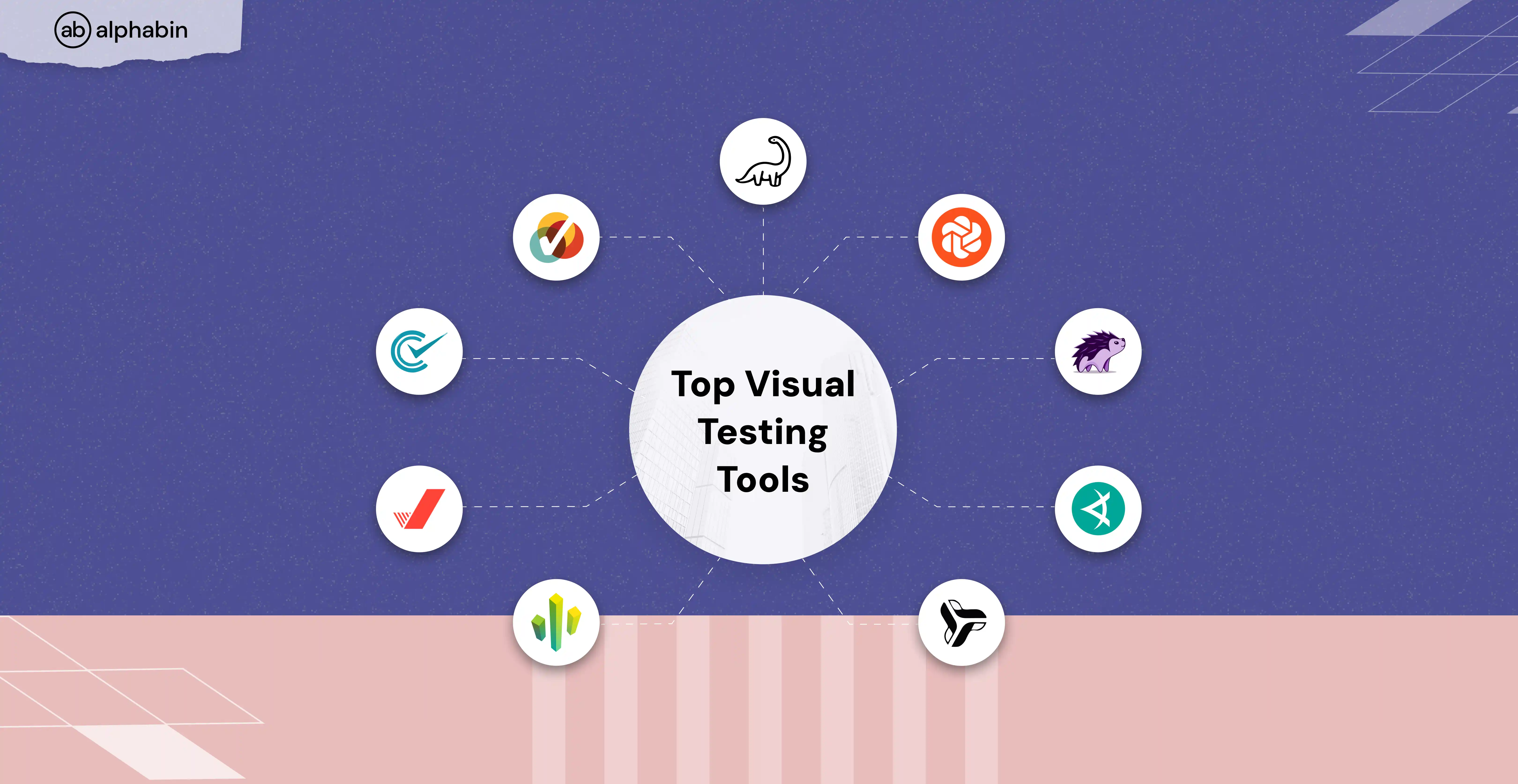In today's hyper-connected digital economy, personal data isn’t just information; it's a form of currency, and like any other currency or asset, it must be protected.
GDPR has proven to be the strongest and most far-reaching data privacy law in the world since 2018.
Fast forward to 2025, and there is more urgency around GDPR than ever. As the rapid pace of technology morphs and data breaches continue to occur, the demand to take a responsible approach to managing personal data will continue to grow.
Therefore, at Alphabin, we believe that to us, GDPR testing is more than compliance; it is business resilience.
"Data protection is no longer a compliance exercise - it is an integral pillar of customer reliance and global business growth."
GDPR compliance is a requirement in 2025, regardless of whether you're a start-up or a global brand. In this guide, we cover what you should test, how GDPR testing works, the tools used, and why it is essential to choose the right partner.
What is GDPR, and who does it apply to?
The General Data Protection Regulation (GDPR) is a groundbreaking data protection law passed by the European Union (EU) in 2018.
The primary aim of GDPR is to protect a person’s data that constitutes personal data and privacy rights across the EU, and to allow people greater control over their data as it relates to how their data can be collected, used, stored, or shared.
- The regulations and requirements outlined in GDPR apply to any business or organization that collects, processes, or stores data about an individual in the EU.
- These GDPR form the legal framework that organizations must follow to ensure the protection of personal data and compliance with EU law.
- Failure to comply can result in GDPR violations, which may lead to significant penalties and reputational damage for organizations.
{{blog-cta-3}}
Why use GDPR compliance testing services?
GDPR compliance testing services provide a structured assessment of your data processing activities that can uncover risks while they are still manageable, rather than waiting for them to become non-compliance issues that can create costs.

Alphabin uses an automation-first approach and domain knowledge to ensure your GDPR compliance testing is done sooner and faster.
We help identify unknown risks and validate remediated controls, while keeping your systems audit-ready from the first day of use.
{{cta-image}}
Core principles and requirements
- Lawfulness, Fairness & Transparency
- Real-world example: Website asks for an email with a consent checkbox and a visible privacy policy.
- How Alphabin helps: We simulate user journeys to test consent capture, check policy visibility, and generate compliance reports.
- Purpose Limitation
- Real-world example: E-commerce site only collects data to fulfill orders, not for marketing.
- How Alphabin helps: Tracks data usage across workflows and tests for unintended data repurposing.
- Data Minimization
- Real-world example: The mobile app only asks for email at login; no extra data is collected.
- How Alphabin helps: Audits forms and APIs, flags extra fields, and recommends removals in compliance reports.
- Accuracy
- Real-world example: Users can update contact info on the dashboard; the system flags mismatches.
- How Alphabin helps: Tests correction workflows and end-to-end change propagation to ensure real-time updates and data integrity.
- Storage Limitation
- Real-world example: HR deletes applicant data 6 months after the position closed; logs confirm deletion.
- How Alphabin helps: Validates retention schedules, verifies deletion/anonymization, and audits logs for regulatory readiness.
- Integrity & Confidentiality
- Real-world example: Data is encrypted at rest and in transit; access is role-based.
- How Alphabin helps: It tests security, validates access controls, and checks encryption against privacy policy.
- Accountability
- Real-world example: The Company keeps records, risk assessments, and training logs.
- How Alphabin helps: Reviews compliance documentation, runs automated artifact checks, and alerts on gaps or expirations.
Importance of GDPR Compliance Testing Services in 2025
As we move toward 2025, GDPR isn't simply a regulation: it is a framework for building trust, accountability, and transparency in a data-driven economy.
{{blog-cta-1}}
GDPR works to ensure that the advanced technology of tomorrow can be used in responsible and ethical ways.
At Alphabin, we are at the forefront by using AI, as the lead in data testing and automation, to assist organizations with compliance and acting in ways considered responsible in today's environment.
{{cta-image-second}}
Increased penalties and global impact
As of 2025, GDPR enforcement is as high as it has ever been, with regulators more willing than ever to apply maximum penalties. To date, total fines have surpassed €20 million, sending more than a clear message that non-compliance is expensive.
Availing of GDPR compliance testing services is an important and incremental risk mitigation strategy that allows the company to find and fix known vulnerabilities.
{{blog-cta-2}}
GDPR compliance testing services checklist
At Alphabin, we have a GDPR testing framework in place to cover all of these key areas, where each aspect is very important, and we use a combination of manual expertise and automated validation to maintain an ongoing level of compliance.
Following this checklist, supported by a skilled team, plays a crucial role in ensuring ongoing compliance with GDPR requirements.
Compliance Essentials: What Needs to Be Tested?

Common gaps found during compliance checks
Alphabin conducts a structured audit, incorporating continuous test automation to identify blind spots (these all-too-frequent features) that are mitigated before becoming legal or operational risk.
How do GDPR Compliance Testing Services help Organization?
- Uncover hidden data risks
- Increase compliance with GDPR
- Prevent regulators from fining you
- Improve data governance
Alphabin's automation-first approach enables faster results and completes 80% of your testing requirements in a fraction of the time, meaning earlier time to market and less regulatory risk.
Integration with security and privacy
GDPR goes far beyond legal duties; it is essentially a certification that data protection has been engineered into systems and processes from the outset.
In essence, GDPR guarantees that personal data is protected at all stages of the data lifecycle.
GDPR requires security by design. Organizations should:
- Securely manage personal data throughout its lifecycle
- Think about security and privacy rules together
Alphabin connects those strained relationships with precision - combining security testing, automation, and AI-based analysis to provide seamless collaboration and a resilient compliance framework across secret teams.
The Role of GDPR in Accessing the European Market
GDPR compliance is not optional for any organization working with EU customer data -it is legally mandatory.
GDPR non-compliance can expose your organization to hefty fines, legal risks, and considerable brand damage.
More than just a legal box to check, GDPR compliance demonstrates trust by showing customers in Europe that you are responsible and secure with their data.
Legal access and market expansion
- GDPR compliance is a serious requirement when wanting to establish yourself in and definitely operate in the European market - without it, companies put themselves at risk for exclusion and legal issues.
- Formal testing of GDPR compliance allows you to demonstrate you are "GDPR ready," and to cultivate trust with EU regulators, partners, and customers - helping you close deals faster and return to the market quicker.
- European buyers can now request third-party evidence to show you operate in alignment with GDPR and have an established third-party verification ongoing - Unique ability to differentiate yourself from competitors that are not aligned with GDPR.
- Alphabin's GDPR testing assists you in demonstrating credibility, meeting buyer expectations, and allowing you to ramp new customers across the European Union confidently!
Ensuring long-term business sustainability
- Consistent GDPR testing will help eliminate compliance debt and enhance governance.
- Constant testing will aid in keeping your systems current with changing regulations and enhance your credibility.
With Alphabin, you can integrate GDPR readiness into your development life-cycle in a way that protects your corporate reputation and sets the stage for future success in Europe.
Conclusion
GDPR compliance is not optional anymore due to the enhanced expectations of privacy and enforcement activity. It is now a responsibility not just limited to a one-time objective. Compliance testing supports risk identification processes, strengthening processes, and ongoing trust building.
Whether you are pushing into the EU market for the first time or confirming existing business operations, investing in GDPR compliance testing should be a strategic growth and resilience investment for you.
Alphabin delivers end-to-end GDPR QA testing against your tech stack and business ambitions, giving you the smarter approach to compliance based on your schedule for 2025.
Are you ready to consider your GDPR obligations for the future? Become a leader of the approach with Alphabin.
FAQs
1. How often should GDPR testing be done?
Annually, additional testing is conducted depending on the nature of any significant change or additional high-risk data activities.
2. How is GDPR testing different than a privacy audit?
GDPR testing is a methodical evaluation of the technical and security measures. Audits look across the wider context of privacy practices and governance.
3. Can tools be used to replace professional testing services?
No. Tools help you, but you will need someone to analyse, assess, and provide commentary on the overall compliance experience and obligations of complex regulation.
4. How much does it cost to be GDPR compliant?
Costs vary depending on the size and complexities of the company, but investment costs of compliance seriously outweigh the cost of a breach or fine.



.svg)






.webp)

%20(1).webp)


